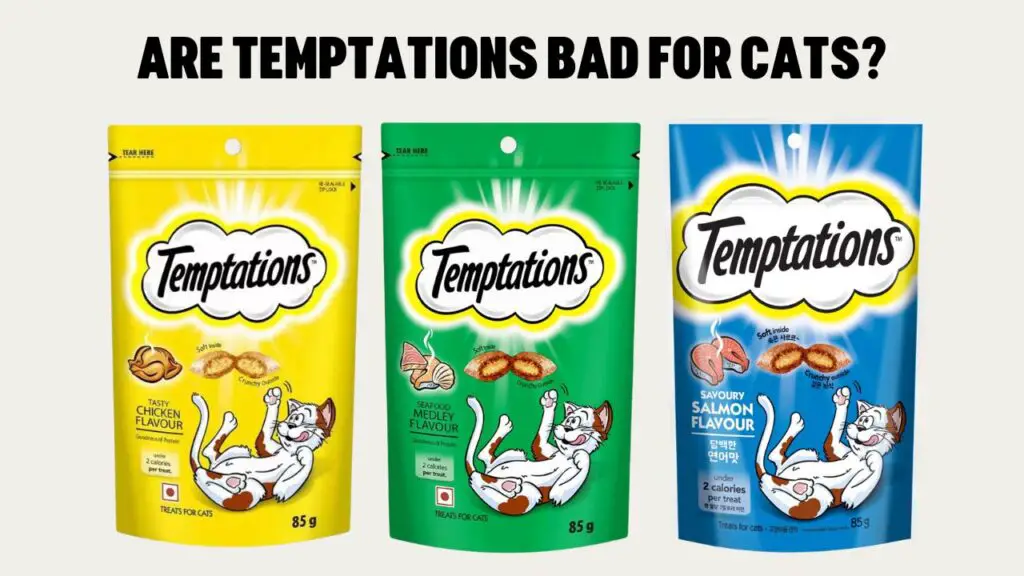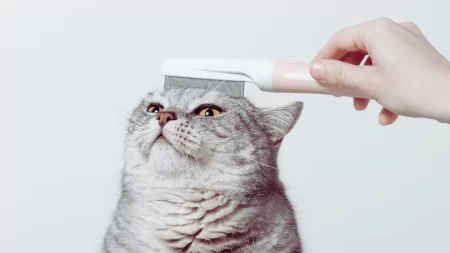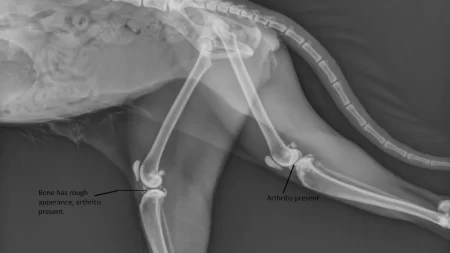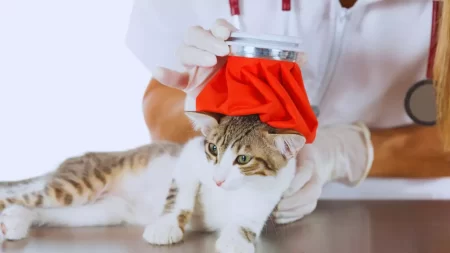Temptations are a brand of cat treats. Generally speaking, they are not bad for cats when given in moderation, as they are formulated to be safe and appealing for cats.
However, like any treat, they should not make up a significant portion of a cat’s diet.
Temptations treats are not a substitute for a balanced, nutritious diet. They are meant to be given occasionally, as a reward or a special indulgence.
What are the potential risks associated with cats eating temptations?
Cats eating temptations may face some potential risks, such as:
- Intestinal blockage: Temptations can be a choking hazard for cats, and they can also cause intestinal blockages if they are not chewed thoroughly. If your cat swallows a Temptation whole, it could get stuck in their digestive tract and cause a blockage. This is a serious medical emergency that requires immediate veterinary attention.
- Dental problems: Temptations are small and crunchy, which can make them difficult for cats to chew. This can lead to dental problems, such as tooth decay and gum disease.
- Weight gain: Temptations are high in calories and fat, which may lead to obesity and related health problems in cats if fed in excess.
- Diarrhea: Temptations may cause diarrhea in some cats due to the high fat content or the sudden change in diet.
- Allergies: Temptations may trigger allergic reactions in some cats due to the presence of corn, wheat, soy, dairy, or meat by-products. Symptoms may include itching, sneezing, coughing, or vomiting.
Are temptations addictive for cats?
Temptations may be addictive for cats because they contain a high concentration of amino acids, which give them a strong umami flavor that cats are innately drawn to.
Temptations also contain natural and artificial flavorings, such as liver flavor and red#40, which may make the treats tasty and appealing for cats.
Some cats may beg for temptations and even refuse to eat their regular food if they get hooked on them.
Signs of cat treat addiction include:
- Whining and meowing
- Pawing at the spot you store the treats
- Agitation and irritability
- Pacing up and down
- Scratching at the cupboard they know their treats are stored
Do temptations provide any nutritional benefits for cats?
Temptations may provide some nutritional benefits for cats, such as:
- High protein: Temptations are high in protein, which is important for cats. Protein helps to build and maintain strong muscles, support immune system function, and provide energy.
- Low fat: Temptations are low in fat, which helps to keep cats at a healthy weight. Excess fat can lead to obesity and related health problems in cats, such as diabetes, arthritis, and heart disease.
- Essential vitamins and minerals: Temptations contain essential vitamins and minerals to keep the kitty’s immune system strong and healthy. For example, they contain vitamin A, vitamin E, zinc, iron, and taurine.
- Nutritionally complete and balanced: Temptations are 100 percent nutritionally complete and balanced for adult cat maintenance. They provide all the nutrients your cat needs in the amounts needed.
Are there any long-term effects of cats regularly eating temptations?
There may be some long-term effects of cats regularly eating temptations, such as:
- Obesity and related diseases: Temptations are high in calories and fat, which can cause weight gain and obesity in cats if fed in excess. Obesity can increase the risk of diabetes, arthritis, heart disease, and other health problems in cats.
- Allergic reactions: Temptations contain ingredients that may trigger allergic reactions in some cats, such as corn, wheat, soy, dairy, or meat by-products. Symptoms may include itching, hair loss, diarrhea, flatulence, vomiting, abdominal pain, listlessness, scratching, or pustules on the skin.
- Digestive issues: Temptations may cause digestive issues in some cats due to the high fat content or the sudden change in diet. This can result in diarrhea, constipation, or vomiting.
- Serious diseases: In rare cases, prolonged consumption of temptations may cause serious diseases such as kidney failure, renal failure, tumors, or cancer in cats. This may be due to the presence of chemicals, preservatives, or artificial flavorings in the treats.
The Best Alternatives to Temptations Cat Treats
Some of the best alternatives to temptations cat treats are:
- Dreamies cat treats: These treats are similar to temptations in taste and texture, but they may have fewer artificial ingredients and more natural flavors. They are available in chicken, tuna, and salmon flavors.
- Purina Dentalife cat treats: These treats are designed to help clean your cat’s teeth and freshen their breath. They are made with natural ingredients and no artificial colors or flavors. They are available in chicken and salmon flavors.
- Vital Essentials Freeze-Dried Minnows Cat Treats: These treats are made with 100% pure minnows that are freeze-dried to preserve their flavor and nutrients. They are grain-free, gluten-free, and high in protein. They are suitable for cats of all ages.
- PureBites Freeze Dried Chicken Breast Cat Treats: These treats are made with only one ingredient: 100% pure chicken breast. They are freeze-dried to lock in the aroma, texture, and freshness. They are low in calories, high in protein, and grain-free.
Blue Buffalo Baby Blue Crunchies Natural Grain Free Savory Salmon Kitten Treats: These treats are specially formulated for kittens with natural ingredients and no corn, wheat, soy, or artificial flavors. They contain DHA to support cognitive development and omega-3 and omega-6 fatty acids to support healthy skin and coat.







